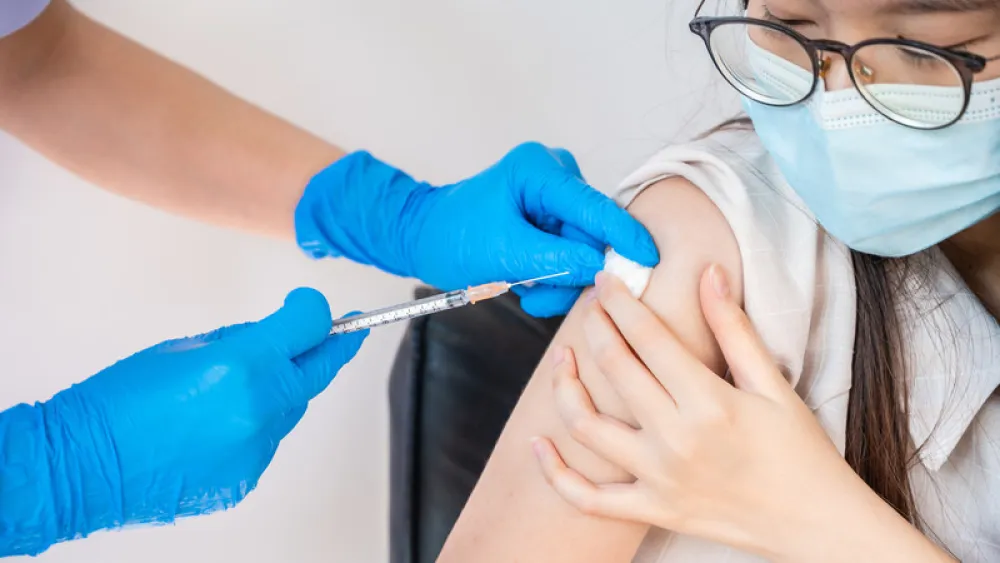Family Health
COVID-19 Vaccine for 12- to 15-Year-Olds: What Parents Should Know
Published: May 11, 2021

Now that the Food and Drug Administration (FDA) has authorized the two-dose Pfizer-BioNTech COVID-19 vaccine for emergency use in adolescents 12 to 15 years old, more young people can soon do their part to protect themselves, their families and their communities from COVID-19.
The COVID-19 vaccine is safe, effective and our best shot at ending the COVID-19 pandemic and saving lives. But if you’re a parent or teen considering vaccination, you may have some questions.
Frequently Asked Questions
What were the results of the Pfizer clinical trial in adolescents?
In March, Pfizer announced that the trial found no symptomatic infections among vaccinated adolescents age 12 to 15. The participants produced strong antibody responses and had side effects similar to 16- to 25-year-olds. The vaccine appeared to be at least as effective – if not more – than it is in adults.
Why should my 13-year-old get the COVID-19 vaccine?
About a year ago, children made up 3% of the COVID-19 cases in the U.S. That percentage shot up to around 22% at the beginning of May. The spike is likely due to children not yet being vaccinated and to the spread of the B.1.1.7 variant, which seems to be more contagious in children. Michigan recently saw a record-breaking number of children hospitalized with COVID-19. While children are less likely to have a serious outcome from a COVID-19 infection, there have been an estimated 300-600 pediatric deaths from the virus in the U.S.
I don’t know. I’m still nervous about my child getting the vaccine.
Hesitancy is a healthy, normal reaction toward something new. As a pediatrician, I want my patients’ parents to be hesitant before exposing their children to new things. I was also hesitant before my pregnant wife and I received our vaccines. But the way we overcame our hesitancy was by educating ourselves.
I looked at the data and the science to help our family make a safe and informed decision. We have excellent data that shows the vaccine is safe and effective. We also have strong data that shows the COVID-19 virus is very infectious and deadly. Over 580,000 Americans have lost their lives to the virus, and that number grows every day. An emergency use authorization from the FDA doesn’t mean good science and research were skipped. It just means we needed to do things a little differently and more quickly to protect our health and save lives.
I want my teen to get vaccinated, but they don’t think they need to. What advice do you have?
We need everyone’s help in ending the pandemic – including our young people. Some experts believe that we need 80-90% of the population to be immune in order to achieve herd immunity. In the meantime, more variants could develop. Each new variant has the possibility of being more transmissible and deadly than the last and could hinder the effectiveness of our existing vaccines.
Children are getting sick with COVID-19 and its variants. Many are suffering long-term symptoms. They’re being hospitalized, and some are even dying. Children can also play a role in transmission. With vaccination, adolescents are doing more than protecting their own health. They’re also protecting the health of those who can’t get vaccinated yet or who are at high risk of severe disease.
What side effects can adolescents expect?
Children age 12 to 15 may experience the same side effects commonly seen in young adults who have already been vaccinated. Most will have no side effects, especially after the first dose. The most common side effect is a sore arm. Others include fever, headache and muscles aches. On rare occasions, anaphylaxis has occurred.
My child is due for other vaccinations. Can they get the COVID-19 vaccine at the same time?
The Centers for Disease Control and Prevention (CDC) and the American Academy of Pediatrics (AAP) approve of getting the COVID-19 vaccine at the same time or within 14 days before or after the administration of another vaccine. Some 12-year-olds may be due for middle school vaccines like meningitis, Tdap and HPV – and many adolescents fell behind their routine immunizations during the pandemic.
If you have questions about the COVID-19 vaccine and your child’s immunization schedule, don’t hesitate to reach out to their provider. They may have a more personalized recommendation based off your child’s medical history.
What other resources do you recommend?
If you have more questions about the COVID-19 vaccine and your child, reach out to your pediatrician or family medicine provider. You can also get updated information from the AAP and the CDC.
More Resources
More Resources
- Need a pediatrician? Find a Methodist provider today.
- Find a vaccine in Nebraska or Iowa.
- Get tips on how to keep your child healthy during the pandemic.
- Read more articles on the latest COVID-19 information.


